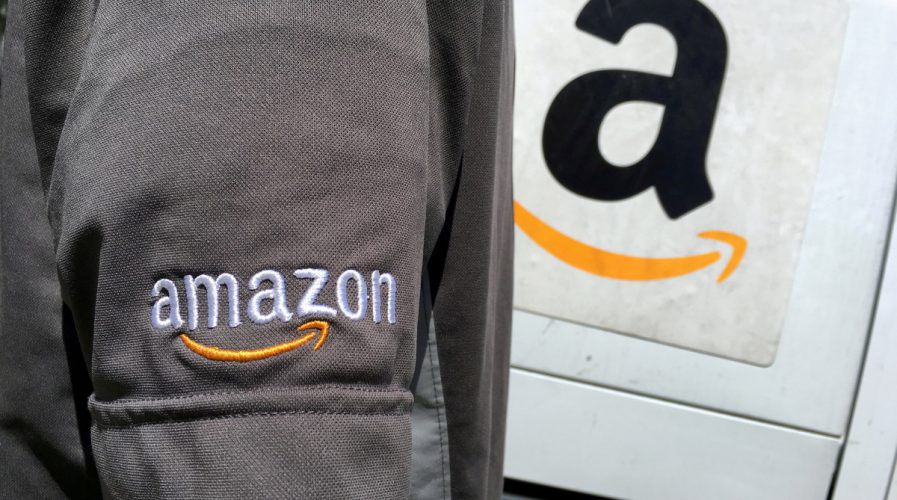
Australia will be going head to head with local players, Myer and JB Hifi in the retail space. Source: Reuters
Nearly 1,600 Aussie retailers face collapse as Amazon’s arrival looms
NEARLY 1,600 retailers in Australia face the threat of imminent collapse amid a difficult year for the industry and the impending arrival of Amazon to the country’s shores in 2018.
The August 2017 Commercial Outlook Report from accountancy and consultancy firm SV Partners predicts that a total of 1,591 businesses, or 3.2 percent of the retail industry, run the risk of winding up as the 2016-2017 financial year proves to be a challenging period.
According to Enterprise Innovation, 21 major retailers with a US$50 million annual turnover were also part of the list, one of which has an annual turnover exceeding US$1 billion. The size of these companies alone does not assure protection from closure.
SV Partners said the latest findings on predicted businesses more likely to collapse was up 12.6 percent from the previous report, and the list is growing.
The difficult period for retailers over the past year became apparent with the departure of Topshop from the Australian market, along with several high-profile administrations Marcs and David Lawrence, Herringbone, and Rhodes & Beckett.
SEE ALSO: Trump tweet-slams Amazon for killing retail industry and job market
A Credit Suisse report said the entry of Amazon is expected to hit Australian Retail, Myer, Harvey Norman, JB Hi-Fi and Super Retail Group. SV Partner echoed the sentiment, saying the impact of Amazon will be felt when it exceeds five percent share of a product category, Enterprise Innovation reported.
In March, Credit Suisse analysts also predicted Amazon could slice one-third of JB Hi-Fi’s earnings and cut Myer’s in half owing to advantages in its global reach, advanced logistics expertise and the lack of pressure to generate profits.
SV Partners managing director Terry van der Velde was quoted as saying the Australian retailers were also faced with a myriad of challenges.
He said:
“High rents in capital cities, high labor costs and increased competition from online retailers have put a strain on many retailers.”
Van der Velde said retailers were expected to face more challenges over the next year.
“Weak wages growth and high property prices also put pressure on the discretionary spending that retailers rely heavily on. We have seen throughout our practice – retailers that don’t have rigorous financial strategies in place are struggling to stay afloat,” he said.
The consultant said in wake of global competition, businesses should look at ways minimize their costs, have better control over debt and consolidate their cash flows.
SEE ALSO: Australia: Amazon pushes further into APAC with new warehouse, country manager
“We urge all business owners to take a critical look at their operations and ensure they have the capacity to handle short-term budget pressures, consistent with long-term capital and revenue strategies,” he said, as quoted by Enterprise Innovation.
Earlier this month, Amazon appointed one of its top German executives to run operations in Australia, signing a lease on a former Bunnings Warehouse space on the outskirts of Melbourne for its first fulfilment centre, according to the Sydney Morning Herald.
Although Australians can already buy Amazon products, the warehouse will likely push the popularity of the service, while also driving down costs.
Shipping costs to Australian buyers can be especially high now, as products are being shipped from its overseas fulfilment centers. Local retailers were said to have a significant problem on their hands, especially those running brick-and-mortar stores.
SEE ALSO: Amazon (finally!) arrives in Singapore, launches free trial of Prime Now delivery services
The US$500 billion Internet retail behemoth promised to create thousands of jobs in Australia, starting off its recruitment drive with over 140 advertised positions in Sydney and another 20 in Melbourne.
However, the numbers of jobs Amazon is tipped to create is taken with a grain of salt, with SMH columnist John McDuling pointing out a study in the US that claimed the company destroyed more than 149,000 jobs in its home country. The quality of the jobs was also questioned owing to Amazon’s reputation for having warehouses that were “grueling places to work”.
Aside from the debate on job creation, Amazon’s presence in Australia is also expected to rattle traditional media as retailers account for 20 percent of the AUD14 billion (US$11 billion) annual advertising market, based on a Morgan Stanley research published in April. And while Amazon spends billions of dollars on advertising, most of the budget ends up with Google and not traditional media.
READ MORE
- Ethical AI: The renewed importance of safeguarding data and customer privacy in Generative AI applications
- How Japan balances AI-driven opportunities with cybersecurity needs
- Deploying SASE: Benchmarking your approach
- Insurance everywhere all at once: the digital transformation of the APAC insurance industry
- Google parent Alphabet eyes HubSpot: A potential acquisition shaping the future of CRM
